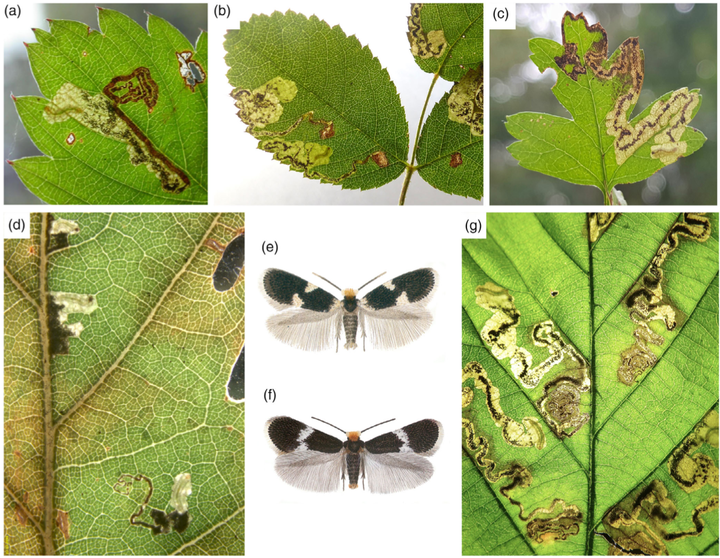Phylogenomic inference of two widespread European leaf miner species complexes suggests mechanisms for sympatric speciation (Lepidoptera: Nepticulidae: Ectoedemia)
 Image credit: C. Doorenweerd
Image credit: C. DoorenweerdAbstract
Leafmining insects have extraordinarily intimate relationships with their host plants and are therefore prime candidates for potential ecological speciation in sympatry, but how commonly this mode of speciation occurs in any group of life remains debated. Prior research on the pygmy moth (Nepticulidae) genus Ectoedemia using morphology, DNA barcoding, and multi-marker phylogenetic approaches left two unresolved species complexes, each with each four described species. In this study, we thoroughly sampled each complex across a range of host plants and localities across Europe. We used a double digest restriction-site associated DNA (ddRAD) sequencing approach to clarify species boundaries. In the E. rubivora complex, ddRAD data resolved all four species, contrary to morphological and COI data, which supports a potential scenario of host plant-driven speciation where the host plant specialization provides an ecological barrier to hybridization. However, we found no indication of host race formation within the oligophagous E. atricollis (Stainton). In the E. subbimaculella complex, SNP data only partly distinguishes between the parapatric E. subbimaculella (Haworth) and E. heringi (Toll), but with some statistical overlap, suggesting incomplete lineage sorting which may represent early phases of host-based ecological speciation, or admixture following a period of isolation.